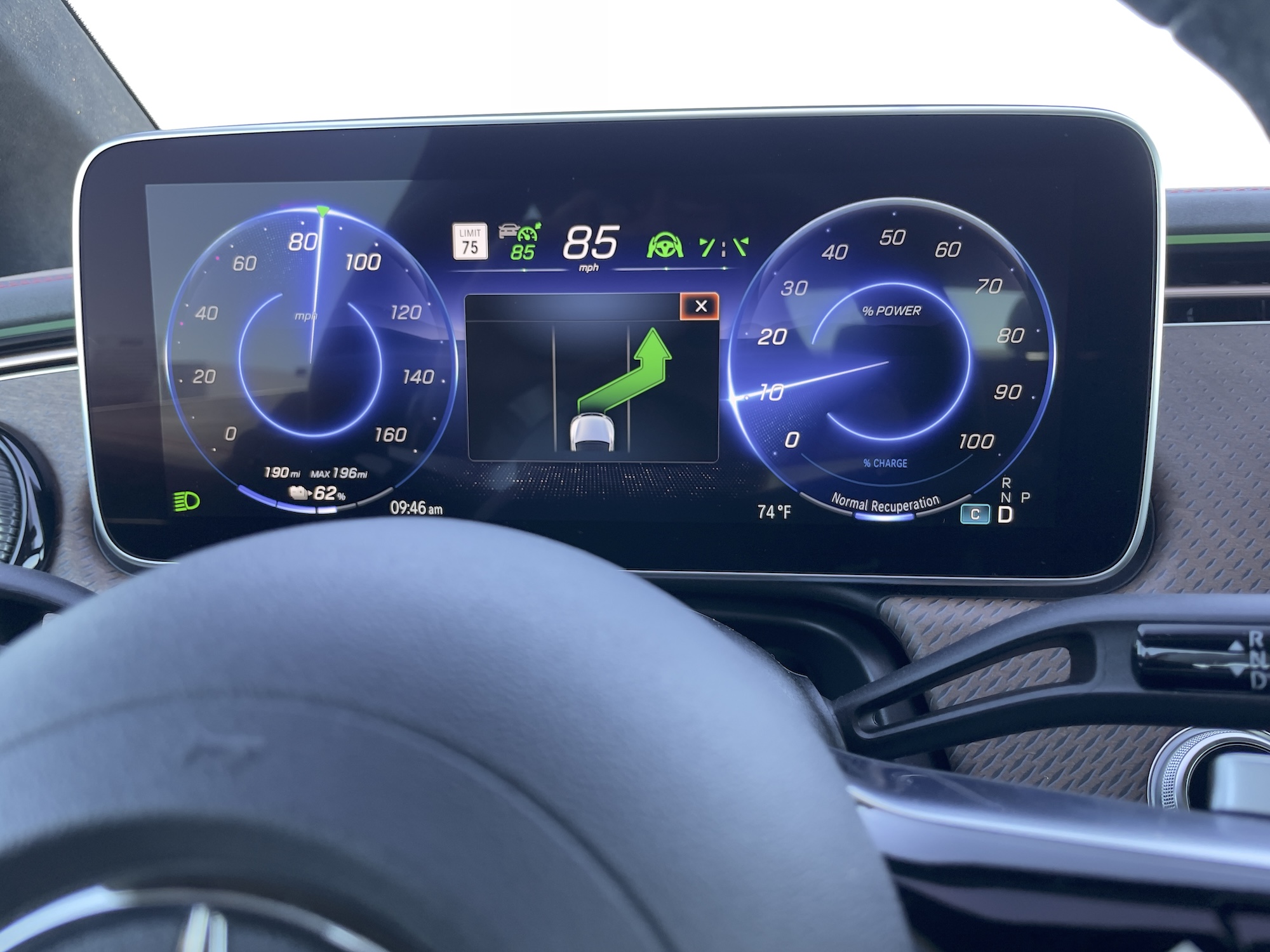Welcome back to JS Mobility — your central hub for news and insights on the future of transportation. Sign up here — just click JS Mobility — to receive the newsletter every weekend in your inbox. Subscribe for free.
It was another wild week in the world of transportation, particularly in the EV startup and automated driving industries. Sure, Cruise got our attention by announcing a return of sorts. But there’s a lot more to read about, including Indian ride-hailing giant Ola exiting the U.K., Australia and New Zealand; a feature on a New York–based startup that wants to bring curbside EV charging to lampposts; Uber Eats launching a TikTok-like video feature; and contract manufacturer Magna piloting humanoid robots developed by Sanctuary AI.
Oh, one more thing — reporter Rebecca Bellan is back! I know readers missed her, so show her a bit of love by sending her some tips at rebecca.bellan@techcrunch.com.
Let’s go!
A little bird
Founders, investors, engineers, policy wonks and others tell us things. And we’re here to pass along the verifiable information that those little birds have shared with us.
Got a tip for us? Email Kirsten Korosec at kirsten.korosec@techcrunch.com, Sean O’Kane at sean.okane@techcrunch.com or Rebecca Bellan at rebecca.bellan@techcrunch.com. If you prefer to remain anonymous, click here to contact us, which includes SecureDrop (instructions here) and various encrypted messaging apps.
Deal of the week

Just a bunch of deals this week!
Basemark, a Finnish company that developed AR and computer vision software used by automakers, raised €22 million ($23.6 million) in a Series B round led by ETF Partners. Other backers include Finnish Industry Investment, Constructor Capital, Business Finland, the European Innovation Council and private investors.
Bumper, an automotive fintech startup sector, raised £2 million in a Series B extension round that included backing from Suzuki Global Ventures and Marubeni Ventures.
Carrar, an Israeli startup that provides battery modules and thermal management systems for EVs, raised $5.3 million in a Series A round that included new investors Salida B.V., OurCrowd, and NextGear, as well as current backers Gentherm, NextLeap Ventures, Dive Digital and others.
Exoes, a French-based startup that developed battery cooling technology for EVs, raised €35 million ($37.5 million) from BpiFrance and Meridiam Green Impact Growth Fund.
HysetCo SAS, a startup that rents hydrogen-powered EVs to taxi drivers in Paris, raised nearly €200 million ($218 million) in a round led by Hy24. Raise Impact and Eiffel Investment Group also participated.
Yoshi Mobility, a Nashville-based startup that developed an app to offer drivers preventative maintenance, virtual vehicle inspections and electric vehicle charging, raised $26 million in a Series C round led by General Motors Ventures. Bridgestone Americas, Universal Motors Agencies and Shikra Limited also participated.
Notable reads and other tidbits
ADAS
The National Transportation Safety Board (NTSB) said the driver of a Ford Mustang Mach-E who crashed into a stationary car in Texas in February was using the hands-free driver-assistance system known as BlueCruise. This is the first known fatality resulting from a crash involving the use of BlueCruise. The NTSB announcement came a day after the safety board announced it’s probing a second fatal crash near Philadelphia where Ford’s driver-assistance system may have been active.
Autonomous vehicles
GM’s self-driving car subsidiary Cruise is back. Sort of. The company is redeploying robotaxis, but not in its home city of San Francisco. Instead, Cruise is setting up shop in Phoenix and all of its autonomous vehicles will be driven manually by employees. Here’s the odd part: Cruise says it will be creating maps and gathering road information in Phoenix, a city where it has had a presence (and has driven autonomously) since at least 2020. That means it has mapped these roads before.
Going all the way back to mapping has me a bit confused. Is this theater or does Cruise see a need to restart its entire process due to concerns about the underlying technology?
Cruise has also petitioned California regulators to reinstate its permits to operate in San Francisco. Will we see the company mapping its hometown yet again, or will it jump back in with a robotaxi service?
Meanwhile, Waymo officially launched paid rides in Los Angeles this week. We previously reported on California regulators’ approval of the Alphabet-owned company to charge for its robotaxi service in the city. The service is starting out small and will build based on demand and performance metrics, a Waymo spokesperson told JS.
Electric vehicles, charging & batteries
Elon Musk’s decision to green-light a robotaxi over an affordable EV might cost the company its lead, TC reporter Tim De Chant writes.
Exponent Energy, the Indian battery-tech company that claims to have developed 15-minute charging technology, has partnered with auto manufacturer Omega Seiki Mobility to deliver a passenger three-wheel EV with those rapid-charging capabilities.
Faraday Future is now grappling with two internal whistleblowers. Both former employees have filed lawsuits claiming the troubled EV company has been lying about some of the few sales it has announced to date. They also claim founder Jia Yueting has “weaponized” the EV startup’s HR department to retaliate against anyone who speaks up about these alleged misrepresentations.
Lucid Motors delivered more EVs in the first quarter of 2024 than it has in any other quarter, though it set the record by a very slim margin.
Tesla dropped the monthly subscription price of its “Supervised FSD” (formerly known as “FSD Beta”) to $99, down from $199, in a bid to get more dollars and data from drivers.
Ride-hail
Lyft and Uber said they will pause on their planned exit from Minneapolis after city officials decided to delay the start of a driver pay raise by a couple of months.
Miscellaneous
Check out this deep dive into Neural Concept, a company that’s using AI to help engineers make more aerodynamic vehicles for racing, automotive and aerospace industries.
This week’s wheels

Image Credits: Kirsten Korosec
I’m back in a Mercedes EV, this time a 2024 Mercedes EQE 350 4MATIC. The model retails at $77,900, not including the destination fee. The version I drove came in at $97,615, due to all sorts of options, like a 10-degree rear axle steering system, head-up display, air suspension, AMG exterior and a $1,250 driver-assistance system.
There are a number of improvements from the previous model year, including a new braking system, a heat pump to help improve driving efficiency in winter conditions, a 20-mile improvement in battery range, 20-inch wheels, power opening port door for charging and a better user interface (in my opinion) on the central infotainment.
What I really wanted to try was the advanced driver-assistance system, and specifically the automatic lane change feature, which I had yet to test.
Within the infotainment center, the driver can choose either “manual” or “automatic” lane change options. When the automatic feature is selected and the ADAS is on, the vehicle will make automatic lane changes without driver input. Here’s how it works. I was driving in the right lane on the highway with ADAS engaged. As the car approached slower traffic, an arrow appeared on the instrument cluster (see photo), the system turned my indicator on and then made the lane change. This can be overridden by holding the steering wheel and keeping it in the lane.
My thoughts? The system worked seamlessly and I could see using it on occasion. The question is whether drivers want to cede that kind of control.







